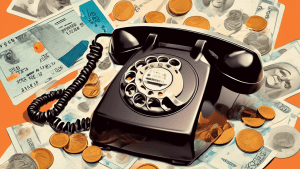Can I Have Multiple PayPal Accounts: Allowed or Not?
PayPal has become a cornerstone of online transactions, offering a convenient way to send, receive, and manage money. Its ubiquity, however, often leads to a common question: Can I have multiple PayPal accounts? The answer, like many things in life, isn’t a simple yes or no. It depends on the why behind your question. This comprehensive guide delves into the intricacies of multiple PayPal accounts, exploring the rules, risks, legitimate reasons, and best practices to ensure you’re on the right side of PayPal’s policies.
Understanding PayPal’s User Agreement
At the heart of the matter lies PayPal’s User Agreement, a document outlining the terms of service governing your relationship with the platform. A key clause within this agreement explicitly states that each individual or business is allowed only one Personal account and one Business account.
Here’s a breakdown:
* **Personal Account:** Designed for individual use, allowing you to shop online, send money to friends and family, and receive payments.
* **Business Account:** Tailored for businesses, enabling them to accept payments from customers, manage invoices, and access various merchant tools.
The rationale behind this restriction is multifaceted. Primarily, it aims to:
* **Prevent Fraud and Abuse:** Multiple accounts can be used to circumvent security measures, engage in fraudulent activities, or manipulate the platform for illicit gains.
* **Ensure Account Security:** Consolidating your financial activity under one account simplifies monitoring and enhances security.
* **Maintain Platform Integrity:** Restricting accounts to one per user ensures a level playing field and prevents unfair advantages or manipulations.
Consequences of Having Unauthorized Multiple Accounts
Violating PayPal’s User Agreement by creating or maintaining unauthorized multiple accounts can have serious consequences, including:
* **Account Limitation:** PayPal may limit the functionality of all accounts linked to you, restricting your ability to send, receive, or withdraw funds.
* **Account Suspension:** PayPal can temporarily suspend your accounts while they investigate suspicious activity.
* **Permanent Account Closure:** In severe cases or repeated violations, PayPal may permanently close all your accounts and ban you from using their services.
* **Legal Action:** While rare, PayPal reserves the right to pursue legal action against users engaging in fraudulent or illegal activities through multiple accounts.
Legitimate Reasons for Multiple PayPal Accounts
While the rules are clear, certain situations warrant the need for multiple PayPal accounts. The key is transparency and adherence to PayPal’s guidelines. Here are some legitimate reasons for having more than one account:
1. Separate Personal and Business Transactions
As mentioned earlier, PayPal allows for both Personal and Business accounts. This distinction is crucial for maintaining organized finances and adhering to tax regulations. A separate Business account allows you to:
* **Track Business Income and Expenses:** Keep your business transactions distinct from personal ones, simplifying accounting and tax filing.
* **Maintain Professionalism:** Accepting payments through a business account enhances credibility and professionalism.
* **Access Business Features:** Utilize features specifically designed for businesses, such as invoicing, recurring payments, and shipping tools.
2. Managing Finances for a Dependent or Employee
You might need to manage PayPal accounts for someone else, such as a minor child or an employee. In such cases, transparency is paramount. Ensure the account clearly reflects the actual owner’s information and complies with all relevant regulations.
3. Specific Country Requirements or Restrictions
Some countries may have unique regulations or limitations regarding PayPal accounts. For instance, you might need a specific type of account to operate a business or receive payments in a particular region. Consult PayPal’s Help Center or contact customer support to understand the specific requirements for your location.
How to Legitimately Open a Second PayPal Account
If you have a legitimate reason for a second PayPal account, follow these steps to ensure compliance:
1. Review PayPal’s User Agreement:
Refresh your understanding of the terms and conditions governing multiple accounts to avoid unintentional violations.
2. Choose the Appropriate Account Type:
Select either a Personal or Business account based on your needs. Ensure the chosen type aligns with the intended purpose of the account.
3. Use Unique Information:
When creating the new account, use a different email address, bank account, and credit/debit card than those associated with your existing PayPal account. This helps establish the account’s independence and legitimacy.
4. Verify Your Identity:
Complete PayPal’s verification process by providing the required documentation, such as a government-issued ID and proof of address. This step is crucial for account security and regulatory compliance.
5. Contact PayPal Customer Support:
It’s highly recommended to contact PayPal customer support and explain your need for a second account. This proactive step demonstrates transparency and allows you to address any potential concerns before proceeding.
Best Practices for Managing Multiple PayPal Accounts
If you have legitimate multiple PayPal accounts, follow these practices to ensure smooth operation and minimize the risk of issues:
* **Keep Accounts Separate:** Avoid logging into multiple accounts from the same device or IP address. Use separate browsers or devices to maintain a clear distinction between accounts.
* **Monitor Account Activity:** Regularly review transactions and activity on all your accounts to detect any suspicious behavior or unauthorized access.
* **Update Account Information:** Keep your personal and financial information up-to-date on all accounts to avoid delays or disruptions in service.
* **Communicate with PayPal:** If you encounter any issues or have questions regarding your accounts, don’t hesitate to contact PayPal customer support for assistance.
Alternatives to Multiple PayPal Accounts
In some cases, alternatives to multiple PayPal accounts might better serve your needs:
* **Additional Users on a Business Account:** If you need others to access or manage your business’s PayPal account, you can add them as users with specific roles and permissions.
* **Third-Party Payment Processors:** Explore other reputable payment processors like Stripe, Square, or Authorize.net, which might offer features or flexibility better suited to your requirements.
Conclusion
While the question Can I have multiple PayPal accounts? may seem straightforward, the answer is nuanced. Understanding PayPal’s User Agreement, the rationale behind the restrictions, and the legitimate reasons for multiple accounts is crucial. Always prioritize transparency, adherence to guidelines, and open communication with PayPal to ensure a safe and compliant experience. By following the outlined best practices and considering alternative solutions, you can navigate the complexities of multiple PayPal accounts while mitigating risks and maximizing the platform’s benefits for your personal or business needs.






No comments! Be the first commenter?